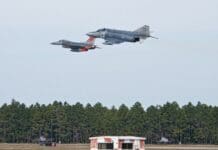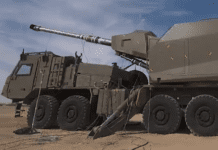This post is also available in:
 עברית (Hebrew)
עברית (Hebrew)
A UK government-sponsored trial demonstrated the capability to safely track the movements of military, enterprise, and government drones once out of visual line of sight. The intent is to provide a decentralized platform for a range of mobility solutions including drones, air taxis, autonomous vehicles and ground robots.
Neuron will do this by connecting sensors, vehicles and management systems to provide a trusted network which can be used for data sharing, record keeping and potentially even decision making.
For the trial, Neuron, specializing in air traffic critical national infrastructure, has leveraged the Hedera network, the most used, sustainable, enterprise-grade public ledger for the decentralized economy. A public distributed ledger and governing body built from the ground-up to support new and existing applications running at web scale.
The trials held during 2021 used sensors to track the drones, recording flight data via the Hedera Consensus Service.
According to Neuron, “until now, drones have had limited benefit for governments and private enterprises, because they could not be flown safely out of line of sight and therefore could not be used for long-distance deliveries, transport, or inspections. With this trial, leveraging Hedera Consensus Service, we have made unmanned, long distance drone travel possible using safety-critical aviation infrastructure. Each flight creates millions of data points, which no other public ledger has been fast enough to log and correctly order. By leveraging the Hedera Consensus Service we can gather, store, and order this data immediately, giving us a real time ‘radar system’ for drones.”
Neuron sensors pick up data points on each drone’s location and direction. From there, the Hedera Consensus Service provides a unique method of logging and timestamping the data from each drone flight onto Hedera’s decentralized public ledger.
The Hedera network operates at a higher speed and performance, with a lower cost per transaction than any other public distributed ledger technology (DLT), offering a scalable basis for drone flights to be adopted across industries.
The trial was sponsored by the UK government’s Department for Business, Energy and Industrial Strategy (BEIS), according to hedera.com.


























